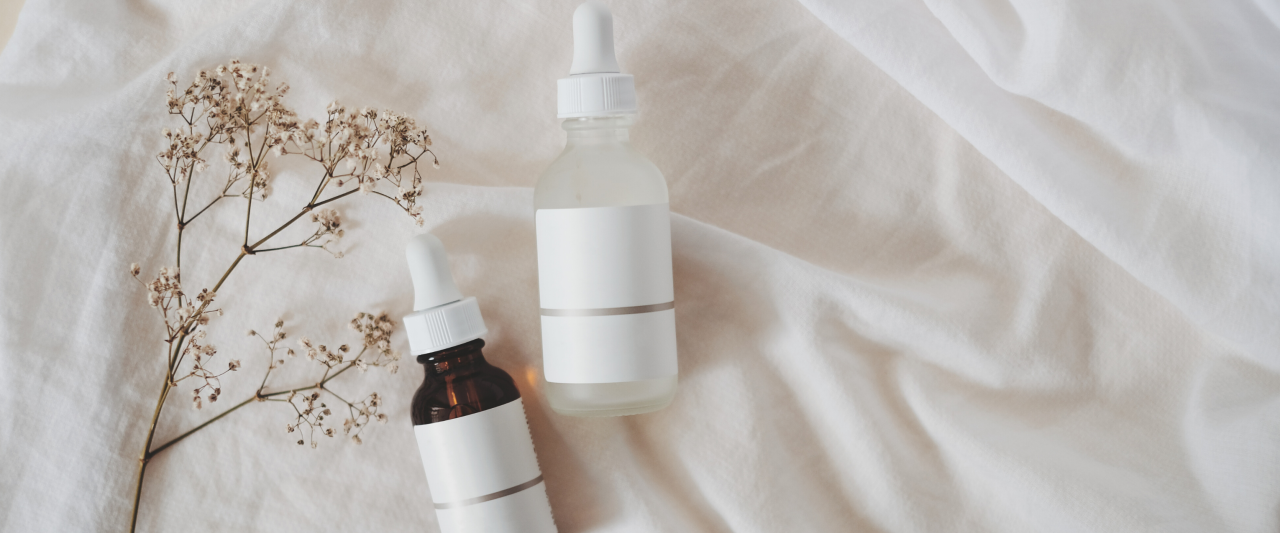What makes a good cleanser?
Keeping your skin clean is one of the most important steps in your skincare routine. When you’re choosing a cleanser, look for two things:
A good cleanser rids your skin of dirt and makeup.
It should not dry your skin out with harsh ingredients.
If your skin feels tight after washing, that’s a sign that your cleanser is too harsh. Try to find a cleanser that contains ceramides. This ensures that you aren’t over-cleansing or damaging your skin’s barrier. You’ll also want to avoid added fragrance if you have sensitive skin.
What to look for in a serum
The world of serums can seem overwhelming. There are so many options, price points, and claims of magical serums that will solve all of your skin issues. Remember that the primary purpose of a serum is to hydrate the skin.
If you’re new to skincare or have sensitive skin, stick to simple, non-irritating ingredients like hyaluronic acid. Some skincare lovers like to layer serums. But in the interest of time and simplicity, focus on finding just one serum your skin loves.
How to choose a moisturizer
The role of a moisturizer is to lock in hydration. It can also act as a barrier against harsh environmental factors during colder months. Some moisturizers even have added benefits like anti-aging ingredients and built-in broad-spectrum SPF.
Remember that your skin changes with the seasons
In the fall and winter, your skin tends to be dryer with less humidity or moisture in the air. During these seasons, try a thicker or heavier cream-like moisturizer. You can opt for one with a lighter or lotion-like consistency in the spring and summer.
What’s your skin type?
In terms of ingredients, ceramides are excellent for dry skin. You can also look for helpful ingredients like urea and hyaluronic acid.
If you have oily or acne-prone skin, seek out a non-comedogenic moisturizer. This means it won’t clog your pores. Comedogenic ingredients depend on your skin’s sensitivity. Some of the most common ones are sodium laureth sulfate,
sodium lauryl sulfate, and beeswax. Moms with sensitive skin should also avoid added fragrances, which can be irritating.
Protect your skin with an SPF
A broad-spectrum SPF (of at least 30) is one of the most important parts of any skincare routine. Leaving your skin unprotected from the sun can lead to sunburn, premature aging, and even skin cancer. Use your SPF every day—that’s right, even in the winter and when it’s cloudy—and reapply as directed.
Deciding between natural or chemical sunscreen depends on your skin type and preferences. To sum it up, chemical sunscreen tends to absorb more quickly for faster application on the go. But if you have sensitive skin, natural sunscreen might be best.
Quick and easy exfoliation
Exfoliation rejuvenates your skin by getting rid of dead cells and dullness. It also doesn’t add much to your daily routine since three times per week is the maximum recommendation. Start with once or twice per week to see what your skin can handle.
This extra step is easy to incorporate with liquid chemical exfoliants that don’t need to be washed off. Gentle chemical exfoliants like low concentration lactic acid are suitable for all skin types.
Just be sure to follow the product instructions. Many chemical exfoliants should only be applied at night since they make your skin more sensitive to the sun.



